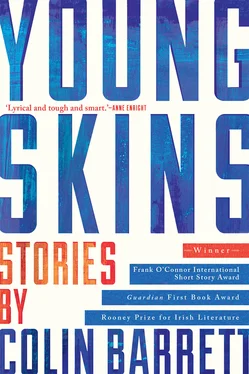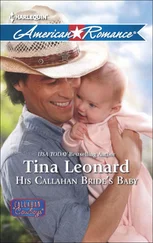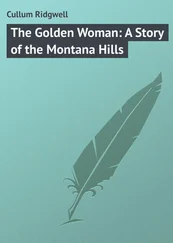Determined to salvage something from the implosion of Sunken Figure, Eli and Maryanne got married. All through his music career, sensible and stoic Eli had barely drunk and studiously eschewed all harder substances, but by the end of their connubial stint Eli’s appetite for illicit stimulants in general and cocaine in particular had outpaced even Maryanne’s, no mean feat. What money did not go up their noses they fed into the production of Maryanne’s solo record, In the Gardens of the Lune , a dauntingly ambitious, sonically incoherent concept album that took as its subject matter the posthumous travails of a fictional family of dead Jews (Holocaust victims, naturally) residing as superpowered ghosts inside the moon. Over layers of wintry distortion, amateur-sounding instrumentation and time signatures so scrambled they practically induced nausea, the lyrics unpacked a labyrinthine downer of a narrative in which the family’s little ghost son and ghost daughter commit ghostly incest, learn to manipulate the tidal patterns of the earth, and eventually cause the waters of the world to flood the entirety of Central Europe — all conveyed by Maryanne in an electronically treated, Bjorkesque fusillade of yips, shrieks and blurts. The album was not well received.
The marriage ended after fourteen months. Maryanne stayed on in London. Eli returned to Dublin. Doran, recovered from his fugue, showed up there too. Eventually the men crossed paths. There was awkwardness, but little animosity, and with Maryanne and Sunken Figure subtracted from the equation, they found making peace relatively easy. If they did not return, quite, to being friends, they were happy to let their orbits resistlessly overlap. Years passed. Eli became an accountant — he had a wife now, Laura, and a daughter. Incapable of any other life, Doran returned to the scene, scratching around with a couple of new bands, running DJ nights and picking up production gigs here and there. He became a sort of ironical eminence, courted by each new wave of local musicians ready to buy him a pint in exchange for a few war stories. But Doran seemed okay, to Eli, more or less functioning and more or less content, or contentedly discontent, and that was the best the likes of Doran was ever going to get. Meanwhile trickles of info regarding Maryanne made its way into Eli’s ear. He heard she remarried, that she too had had a little girl. But nothing more substantive than those scant elementary updates, until this.
Doran said, ‘I loved her too.’
‘Yes,’ Eli said.
He was looking at the windows. The rain had stopped. The inner panes of the windows were layered with dust; what light came through appeared microbial, quivering with impurities. The Boatman faced onto a lane that ran along one side of the cemetery wall. The cemetery gate was at the end of the lane. The procession, both men knew, would pass right by the pub. They would not be able to avoid seeing it, Eli realised, or at least making out its long, aggregated silhouette in those same dirty windows.
‘I saw the family,’ Eli declared.
‘Oh?’ Doran said.
‘After I went up the hill I took a path down to the rear of the church. Curiosity, I guess. I hopped a fence and squinnied down behind a row of saplings. Hence the dirty knees. I hunkered down and watched through a bush, saw them going into the service.’
‘On your knees?’
‘So I wouldn’t be seen.’
‘Ah,’ Doran said.
‘I caught a glimpse of them, alright,’ Eli said.
Over the totality of the years Eli had met Maryanne’s father exactly once — a tense hotel dinner through which Eli suffered the thin, vertiginous feeling that everyone at the table, including himself, was being played by actors. Maryanne’s father, a retired barrister, was even then implausibly elderly, eighty-six to his daughter’s twenty-eight, though he was still hale and snappishly alert. The dashing woman in her fifties accompanying the father was very much not Maryanne’s mother. The actual mother was purportedly insane, certifiably so, and had been domiciled in an institution as far back as Maryanne could remember, and that’s all Eli ever got out of her about her mother. There was one sibling, an older brother who worked in Futures, in Hong Kong, and who never came home.
‘Furtivity is our natural state,’ she had told Eli when he asked why she always said so little about her family.
‘I saw the father,’ Eli continued. ‘Must be touching a hundred now. In a wheelchair, flunkies either side. Insane. I saw the brother. Had to be him, looks just like her. A double, disconcerting to see her in a man’s face. I saw — I think — the husband, and the kid, her girl. But they didn’t see me. And they wouldn’t know who I was if they did.’
‘But they would know of you,’ Doran said.
‘Maybe,’ Eli said doubtfully. He drained his drink. He put the glass down. He blinked, heavy-lidded. He was woozy after that single pint, and knew he would be on his ear if he went as far as three. He considered the door in the floor.
‘He’s down there? The guy,’ he said. ‘How long?’
Doran rubbed his chin. ‘He must be in fucking China by now. Fuck this noise, this is negligence. You want another bev?’
Eli grimaced, considered his constitution, and said, ‘Yes.’
‘Hup,’ Doran said, rising again over the counter and searching with his hand for more clean glasses.
‘Eh, hi,’ Doran heard Eli declare. Something moved in front of Doran. A package of refrigerated muscle encased his hand and commenced crushing his finger bones together. Doran looked up. The barman’s smile loomed above him, mild and indicting, and beneath that smile a second one, lividly concertinaing his neck.
‘No,’ the barman hissed.
Doran wrenched his hand free of the man’s pale grip.
‘A word would’ve achieved the same,’ he said, shaking his smarting hand in the air.
‘Can’t. Just. Take,’ the barman said with infinite reasonableness. Then: ‘What you want?’
Doran ordered the drinks and the barman picked out two clean glasses.
‘What were you doing down there anyway?’ Doran asked, nodding towards the door in the floor.
‘Inventory.’
‘Well now. That’s as good an excuse as any. What’s your name?’
‘Dukic.’
‘Do-kitsch?’
‘Dukic.’
Eli watched the barman top up the pints and dip each in turn, tipping away the runoff. The sloughed foam pumped down the outside of each glass and sank into the grated metal recess under the taps. The barman was tall, six four at least. His scars were hideous, a row of ragged, mortified grooves bright against the lines of his collar.
‘Well I’m Doran. And this is Eli.’
The barman gave an acknowledging grunt and distributed the pints, hooking away the empties in the same movement.
‘This,’ Doran said, and with his index finger circled his own Adam’s apple. ‘It’s a nasty fucking razor burn, Do-kitsch. How’d you end up with it, if I may ask?’
The barman drew himself up. His lips twitched. He seemed to be deciding whether to say anything at all. Then he grinned, politely, as if he was obliged to find the reminiscence fond, ‘I was in the war.’
‘The war,’ Eli said.
‘Of course,’ Doran said. ‘And which one was that?’
‘Bosnia. You recall?’
Doran waved a hand in the air. ‘There was a bunch of them down that neck of the woods, wasn’t there? Serbs, Croats, Sarajevans, all that noise, killing the shit out of each other.’
The barman nodded.
‘I mean, it was complicated, so forgive my ignorance,’ Doran said.
‘It was not your problem,’ the barman said.
‘Though evidently, it was yours,’ Doran said with some regret.
‘Now just excuse,’ the barman said and retreated deftly five feet down the bar. He stooped low, rummaged momentarily and returned to his full height brandishing a chequered blue-and-white terrycloth and a purple bottle of lemon cleaning spray. He turned a tap and ran the terrycloth beneath it, then twisted out the excess moisture. Onto the dark brown surface of the counter he dashed a succession of brisk, parallel jets of the lemon spray. He waited for the mist to settle before applying the damp terrycloth, bringing it in a neat rectangle around the sprayed section of the counter, then working inwards in diminishing, carefully nested rectangles.
Читать дальше












